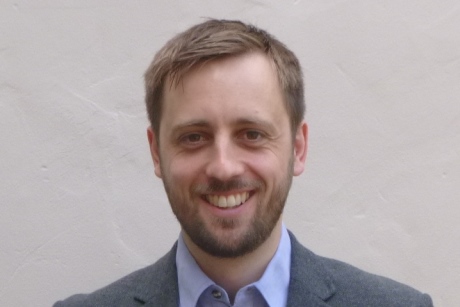British Council senior project manager Stephen Hull writes about the importance of helping pupils to understand that Maths is more than just a series of sums.
In Autumn, teachers from around the UK will be able to embark on a range of new – and free – training courses from the British Council; the UK’s international organisation for the development of educational opportunities.
The courses are being made available through the council’s Connecting Classrooms programme and their aim is to help teachers develop their teaching of core skills such as critical thinking and problem solving in the context of a band of subjects.
In particular, the council has created a series of targeted Maths sessions, which aim to show teachers new ways of making Maths more accessible for students and help pupils understand its relevance to real life.
Stephen Hull, senior project manager at the British Council explains the thinking behind the sessions below…
“Maths is truly exceptional. Not only is it a creative discipline in its own right, but it enables us to explore space; construct bridges; create the latest electronic gadgets; and develop ground-breaking scientific instruments like the Large Hadron Collider.
“In essence, it underpins the world around us and has helped humankind advance at an astonishing pace – particularly in the last half century.
“Maths is also entrenched in the everyday: we use Maths for planning journeys to see loved ones; compare offers at the supermarket; figure out what we stand to gain and lose as part of a business decision; and to interrogate the latest health-related claims in the media.
“In addition, Maths, and quantified data, are unavoidable in today’s workplace. In almost all professions, there is a need to demonstrate that decisions are made based on solid evidence.

Pictured: Stephen Hull from the British Council.
“This context shows that being numerate is not just for the privileged; it is for everyone. It is liberating, empowering and enables us to make informed decisions about our lives and the lives of others.
“Moreover, these examples demonstrate pupils shouldn’t just associate Maths with the classroom: they should be able to see and experience it for themselves.
“The challenge for curriculum developers and teachers is to enable students to see how Maths applies both in and outside of the abstract.
“Mathematician and entrepreneur Conrad Wolfram describes a four step process which relates mathematical thinking to real problems:
- First, you are faced with, or pose, a real-life question or problem
- Then you must turn it into a maths problem – this is a process of abstraction into numbers or mathematical models
- Next, you manipulate the numbers or work on the model
- And finally, you turn the result back to the real world, and you can see whether you got it right
“He argues that Maths in education tends to get stuck on step three. Ask yourself: what might make it more likely a student will understand the complex calculation part – only doing it in the abstract, or also seeing it having a tangible effect?
“For some students an initial grounding in the real world can be trigger for a taking Maths to a higher level.
“Let’s say your school is trying to decide whether to build a new sports hall. Why not get pupils out there, measuring the space; presenting a business case to the head teacher; holding a panel to assess builders’ tenders; and judging environmental effects from first-hand data.
“These draw on mathematical knowledge as well as interpersonal and thinking skills, and crucially, pupils are outside, really using and experiencing Maths. This is Maths they will remember.
“Of course there are challenges ahead, as in all subjects. It’s easy to assess, for example, how many of your students can find the correct answer to a list of problems. It is much more difficult to assess the plethora of skills necessary to engage with a complex, real-life question.
“Is it even possible to disaggregate one pupil’s level of understanding, progress and contribution to the overall group effort in this example?
“Despite the challenges, the educational opportunities are electrifying and as always, teachers are uniquely placed to unlock a world of potential in young people. And luckily, there is a growing consensus about the need to embed critical thinking and wider skills alongside core-knowledge.
“Recent reform in England has seen the explicit introduction of critical thinking and problem solving skills into Maths curricula and exams. Many innovative, skilful teachers already provide students with exactly what they need for life ahead. But now the curriculum is changing, it’s a chance to ensure all pupils have access to the best opportunity to leave school prepared for life in the twenty-first century.
“With this in mind, the British Council has developed its Connecting Classrooms programme. The course for Maths teachers in England was developed and is being piloted in partnership with the National Centre for Excellence in the Teaching of Mathematics (NCETM).
“In today’s dynamic and ever-changing global economy, deep knowledge and effective, adaptable expertise are needed to succeed. More than ever, students are at a disadvantage if they have to learn all the skills they need on entering the workplace.
“But students will thrive if learning at school both impassions and enables them to grapple with complex problems and discover how to shape their own destinies. And that’s one of the reasons the British Council is offering these training courses.”
The new maths-focused course will be available nationwide from Autumn 2016. It’s free to attend, and because it’s the British Council, teachers who take the course will also be eligible for £3,000 grants to travel overseas to share their work with schools in other countries.
For more information about the Connecting Classrooms programme, visit the British Council website schoolsonline.britishcouncil.org/about-schools-online/about-programmes/connecting-classrooms.










